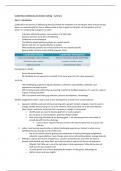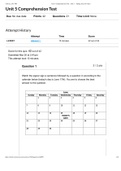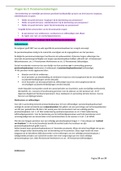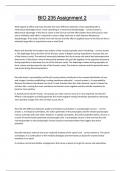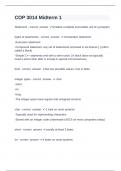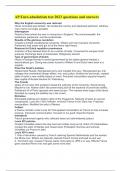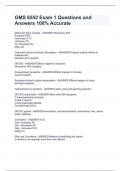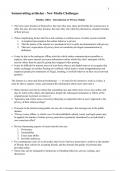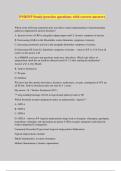Resume
Summary Leadership and Behavioural Decision Making
- Établissement
- Katholieke Universiteit Leuven (KU Leuven)
This is a complete summary of the course Leadership and Behavioural Decision Making taught at KU Leuven, campus Brussels including complete notes from all classes. The course is part of the core module of the Master of Business Administration.
[Montrer plus]
